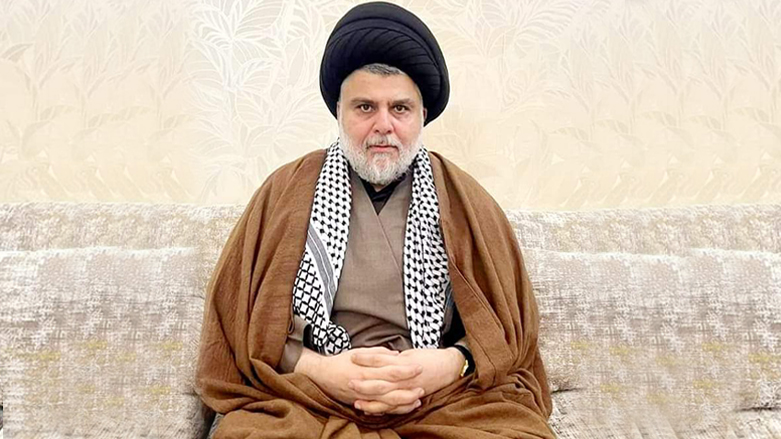Future political map of Iraq to be drawn in al-Hananah

ERBIL (Kurdistan 24) - The Shiite cleric and leader of the Sadrist movement, Muqtada al-Sadr, received Iran's Islamic Revolutionary Guard Corps (IRGC) Quds Force commander Ismail Qaani on Tuesday.
A terse statement by the Sadrist Movement office in Najaf, received by the Iraqi News Agency (INA), stated that "Muqtada al-Sadr received Ismail Qaani in al-Hananah."
"Neither eastern nor western... a national majority government," Sadr tweeted following his meeting with Qaani.
— مقتدى السيد محمد الصدر (@Mu_AlSadr) February 8, 2022
His tweet, as always, came in the form of a signed and handwritten letter by Sadr.
Al-Hananah is in the holy Iraqi city of Najaf and is home to Sadr's headquarters. Since last October's elections, several of Iraq's political leaders have visited there for political talks with the current kingmaker.
The October election results significantly shifted the balance of power in Iraq. Consequently, many Iraqis, including the political elite, are watching in anticipation of the statements and decisions coming from al-Hannah.
The decisions that now come out of al-Hananah are changing the political landscape in Iraq and the wider region. That is the reason that foreign officials such as Qaani are visiting al-Hananah.
The most powerful political alliance in Iraq right now is the one led by al-Sadr. In addition to singlehandedly winning the largest number of parliamentary seats, 74, it is backed by the overwhelming majority of Sunni parties, Azm and the Progress's Alliance of al-Siyada, with 67 seats, and the leading Kurdish party, the Kurdistan Democratic Party (KDP), which has 31 seats.
Read More: President Barzani and Shiite Cleric Sadr reaffirm strategic alliance is coherent
Sadr's decision to boycott Monday's session of the parliament, a move followed by both al-Siyada and the KDP, has stopped the constitutional process of electing a new president and frozen the political talks for forming a new government.
The Sadrist bloc made its announcement after Iraq's Supreme Court temporarily suspended the nomination of frontrunner Hoshyar Zebari, whose presidential bid is supported by Sadr. Zebari is the KDP's candidate for the Iraqi presidency.
The Iraqi Federal Supreme Court decided on Sunday to temporarily suspend Zebari's candidacy until a lawsuit registered against him is resolved.
On Sunday, Zebari denied the charges and said he respected the court's decision.
On Tuesday, the Iraqi Parliament opened the door again for political parties to nominate new candidates for the Iraqi presidency.
Read More: Iraqi Parliament reopens the door for nominating presidential candidates
The decision, which came in a letter signed by the Speaker of Parliament Mohammed Al-Halbousi, has set three days (Wednesday through Friday) as a period during which the political parties can nominate new candidates for the presidency.
If the federal court doesn't resolve Zebari's case within those three days, the KDP will have to nominate another candidate.
Monday's session reflects the deep divisions among Iraq's political factions that have grown since the October parliamentary elections, the results of which have been rejected by Iraqi factions supported by neighboring Iran.
Read More: Talks over Iraqi government formation reach deadlock
It also tells us that the Iraqi political decisions henceforth come from al-Hananah.
According to political observers, the Sadr-led strategic alliance – a movement with strong national ties and values backed by Sunni and Kurdish political parties, none of which are influenced by Iran – will most likely draw the political map in Iraq for the next four years.
